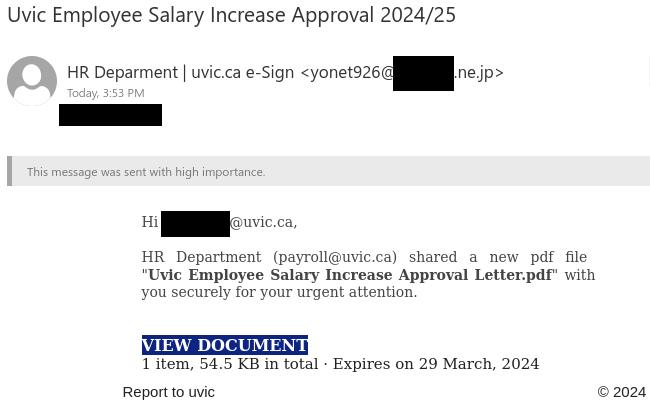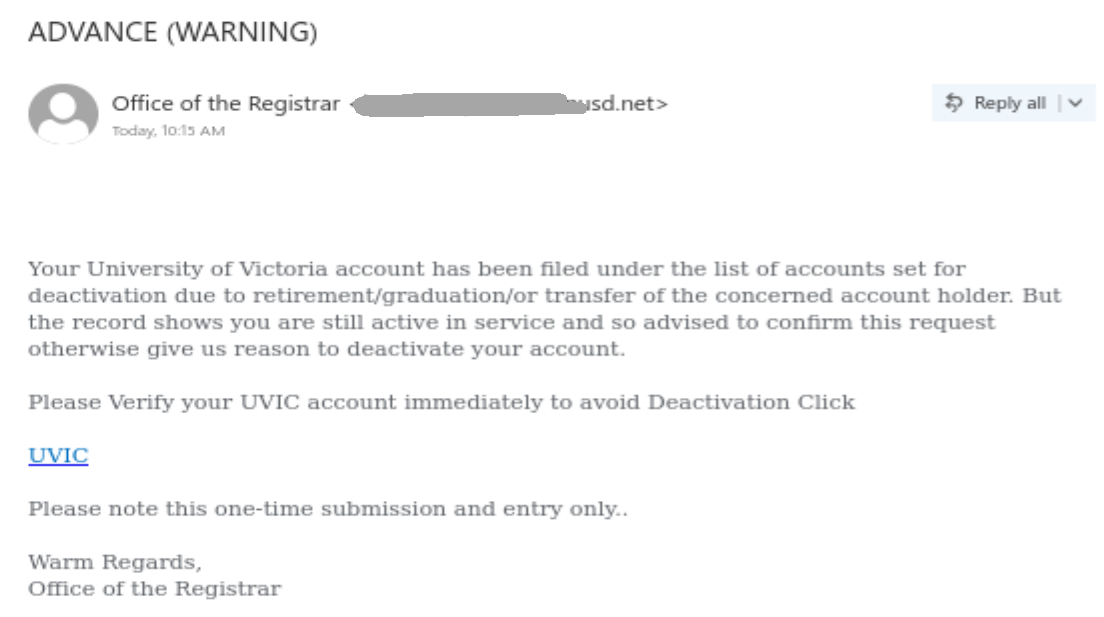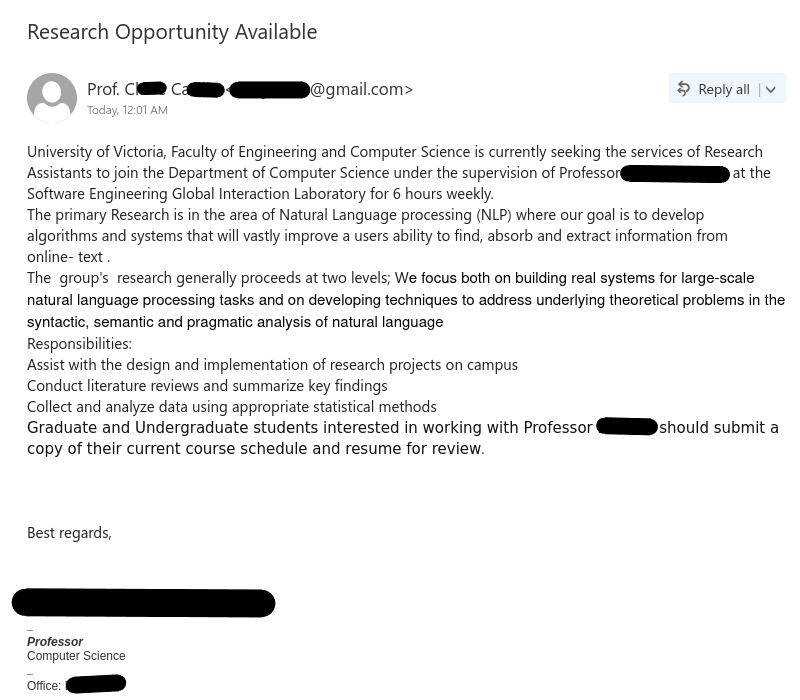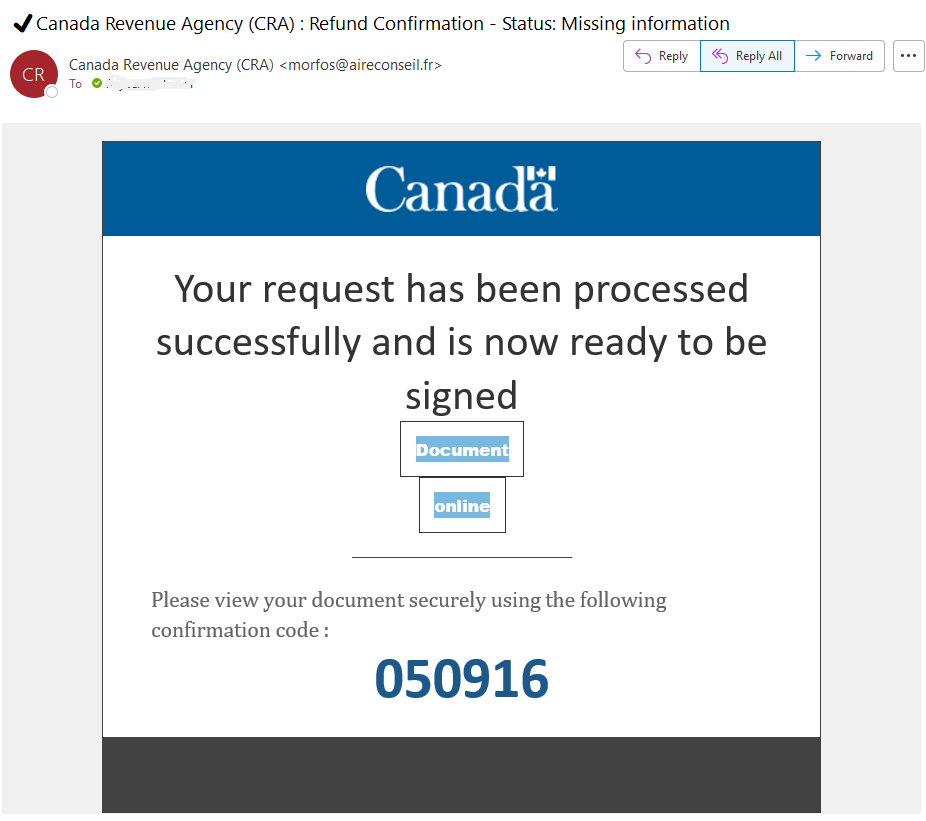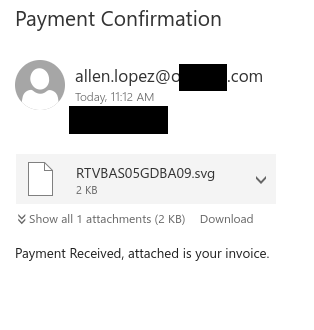Job scammers are continuing to try to take advantage of students looking for extra cash to help pay for tuition, housing and other essentials in these times when the cost of living is so high. Below is yet another job scam that impersonates a real UVic professor.
For more information on job scams and how to spot them, see also these guides from CBC News and TD Bank.
Red flags to watch out for
- The email came from a Gmail address. A real UVic job opportunity should be announced from a UVic email address. Ones that come from a free email provider like Gmail or Outlook are probably scams.
- The pay is too good to be true for a part-time student job that requires no prior experience and is open to anyone.
- The offer implies that there will be no job interview before you get assigned a work schedule. A legitimate job should give you a chance to meet the employer in person or on a video call before you accept an offer. If you are accepted without an interview, the job is very likely to be a scam.
- The email asks you for an alternate email address and cell phone number. Scammers often do this to shift the conversation away from UVic email and evade monitoring.
- The subject line contains punctuation errors.
Common methods that the scammers use to steal money from people who reply
- They ask you to purchase gift cards from a local store and send photos of the cards with the PINs revealed. That gives the scammer the information needed to use the funds on the cards. The scammer either will not reimburse you at all or give you a cheque that will ultimately bounce a few days later.
- They give you a cheque to deposit and tell you to transfer some of the funds to another person and keep the remaining funds (cheque overpayment scam). A few days later, the cheque will bounce, meaning the amount you transferred is gone from your own funds.
If you replied to the scammer, reach out to the Computer Help Desk immediately for assistance.
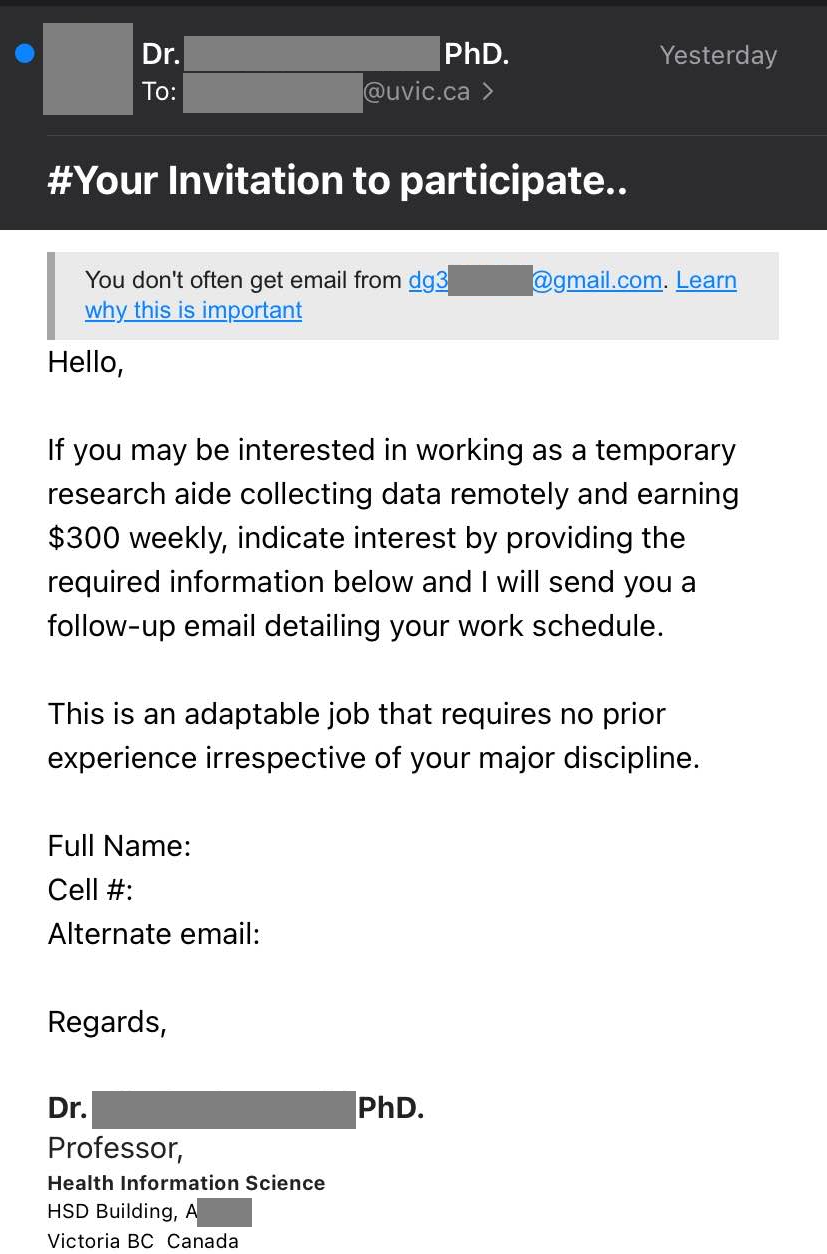
From: Dr. [redacted] PhD.
Subject: #Your Invitation to participate..
You don’t often get email from dg3******@gmail.com. Learn why this is important.
Hello,
If you may be interested in working as a temporary research aide collecting data remotely and earning $300 weekly, indicate interest by providing the required information below and I will send you a follow-up email detailing your work schedule.
This is an adaptable job that requires no prior experience irrespective of your major discipline.
Full Name:
Cell #:
Alternate email:
Regards,
Dr. [redacted] PhD.
Professor,
Health Information Science
HSD Building, A***
Victoria BC Canada
